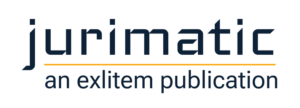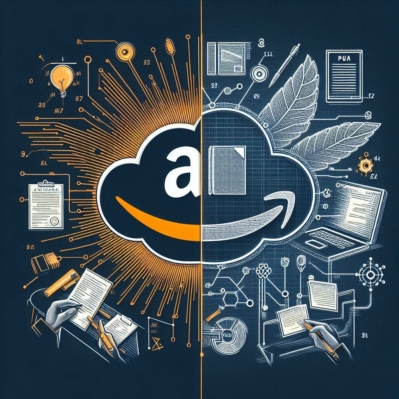Acceleration Bay, Llc vs. Amazon Web Services, Inc.
Case Background
On July 6, 2022, Plaintiff Acceleration Bay, LLC filed a Patent Infringement lawsuit in the District Court of Delaware (Case number: 1:22cv904). The case was assigned to Judge Richard G. Andrews and referred to Judge Sherry R. Fallon.
Cause
Acceleration Bay LLC owned several patents (U.S. Patents 6,701,344; 6,714,966; 6,732,147; 6,829,634; 6,910,069; and ‘497) related to distributed network systems and methods. These patents covered technologies for implementing broadcast channels and information delivery services. They also included methods for joining and leaving broadcast channels using regular networks. The patents described specific network structures and processes for efficiently distributing data among participants in computer networks. Further, they aimed to overcome issues with scalability and reliability in conventional systems.
Amazon offered various cloud computing and networking products and services that allegedly infringed on Acceleration Bay’s patents. These included Amazon Web Services (AWS), Elastic Kubernetes Service (EKS), Elastic Cloud Computing (EC2), AWS App Mesh, Lambda, CloudFront, Virtual Private Cloud (VPC) Peering, Elastic Load Balancing, the Lumberyard game engine, GameLift, the Luna cloud gaming platform, Twitch streaming service, and Amazon Prime Video.
Amazon utilized technologies like overlay networks, auto-scaling, content delivery networks, and peer-to-peer communication. These technologies fell within the scope of Acceleration Bay’s patent claims. Acceleration Bay notified Amazon of the infringement on March 13, 2019, and offered to negotiate a license. However, Amazon did not respond and continued to infringe. The company made no efforts to avoid infringement despite being aware of the patents.
Injuries
Acceleration Bay suffered ongoing injury due to Amazon’s continued unauthorized use of its patented technologies. This infringement deprived Acceleration Bay of its exclusive rights granted by the patents, preventing the company from fully benefiting from its innovations and investments in research and development. The infringement also denied Acceleration Bay potential licensing revenue and market share for its innovations in cloud computing, content delivery networks, and distributed systems. Additionally, Acceleration Bay’s ability to commercialize its patented technology was impaired by Amazon’s widespread infringement. Amazon’s willful infringement, after being notified, compounded the harm to Acceleration Bay.
Damages
Acceleration Bay sought damages of at least a reasonable royalty for Amazon’s infringement, with the exact amount to be proven at trial. The company requested increased damages under 35 U.S.C. § 284 due to Amazon’s willful and deliberate infringement. Acceleration Bay also sought treble damages, as well as attorney’s fees and costs under 35 U.S.C. § 285. Furthermore, Acceleration Bay asked for injunctive relief to stop Amazon’s ongoing infringement.
Key Arguments and Proceedings
Legal representation
- Plaintiff(s): Acceleration Bay, LLC
- Counsel for Plaintiff: Philip A. Rovner| Aaron M. Frankel | Christina M. Finn | Cristina L. Martinez | James R. Hannah | Kristopher B. Kastens | Lisa Kobialka | Michael H. Lee | Nicole Kathleen Pedi | Paul J. Andre | Pooja P. Parekh
- Experts for Plaintiff(s): Harry Bims | Lance E. Gunderson | Nenad Medvidovic, Ph.D. | Dr. Eric Cole | Michael Goodrich, Ph.D
- Defendant(s):Amazon Web Services, Inc.
- Counsel for Defendants: Alan M. Fisch| Jack B. Blumenfeld | Jeffrey Saltman | Jennifer Ying | Lisa Phillips | William Sigle
- Experts for Defendant(s): Nadya B. Sultanik | Lauren R. Kindler | Joseph B. Greene
Claims
Acceleration Bay asserted claims of direct patent infringement against Amazon under 35 U.S.C. § 271(a) for the ‘344 and ‘966 patents. The complaint also alleged indirect infringement of the ‘344 patent under 35 U.S.C. § 271(b) for inducement and § 271(c) for contributory infringement. Acceleration Bay claimed that Amazon directly infringed the patents through its AWS products and services, induced infringement by its customers, and contributed to infringement by providing software components with no substantial non-infringing use. The plaintiff sought injunctive relief to stop Amazon’s ongoing infringement in addition to monetary damages. Acceleration Bay claimed that Amazon’s infringement was willful and egregious, justifying enhanced damages.
Defense
AWS asserted twelve specific defenses in response to the allegations by the Plaintiff in a Patent Infringement lawsuit. They denied infringing any valid, enforceable claims of the asserted patents, either literally or under the doctrine of equivalents. AWS challenged the validity of the asserted patent claims, arguing they failed to comply with various requirements of U.S. patent law. They questioned Acceleration Bay’s standing to bring the lawsuit, suggesting the plaintiff might not possess full title to the patents. AWS claimed protection under express or implied licenses, citing potential prior agreements with the patents’ previous owner. They alleged breach of contract, asserting that AWS was a third-party beneficiary of an agreement between Acceleration Bay and the prior patent owner.
AWS invoked prosecution history estoppel and disclaimer to limit the scope of the patent claims. They raised equitable defenses, including estoppel, acquiescence, waiver, and unclean hands. AWS argued for statutory limitations on damages and against injunctive relief, noting that the patents had expired. They contested Acceleration Bay’s entitlement to attorneys’ fees and enhanced damages for willful infringement. Finally, AWS raised the government sales defense, potentially limiting claims related to products used by or manufactured for the U.S. government. Throughout their defense, AWS vehemently denied all of Acceleration Bay’s allegations and sought dismissal of the complaint with prejudice.
Expert Testimony
Plaintiff Acceleration Bay, LLC introduced Dr. Harry Bims as an expert witness, providing a comprehensive technology tutorial on U.S. Patent Nos. 6,701,344; 6,829,634; 6,732,147; 6,714,966; and 6,910,069. His analysis clarified the patents’ key features and their implications for the industry.
The plaintiff also disclosed Lance E. Gunderson, who offered critical insights into the patents’ applications and potential infringement issues. Dr. Nenad Medvidovic was introduced to address the alleged infringement by Amazon Web Services, Inc., providing detailed evidence and source code citations to support the claims.
Additionally, Dr. Eric Cole contributed as an expert witness, discussing the patents’ significance and potential impact on market competition. Dr. Michael Goodrich rebutted the arguments regarding the validity of the patents, asserting their enforceability against the challenges raised by the defendants.
In response, the defendants, Amazon Web Services, Inc., disclosed Nadya B. Sultanik, who provided a rebuttal report arguing that the company did not infringe upon the patents. Lauren R. Kindler also contributed a rebuttal report, supporting the non-infringement argument with detailed technical analysis. Finally, Joseph B. Greene presented evidence focusing on the invalidity of the patents, citing prior art and questioning their novelty and non-obviousness.
Jury Verdict
On September 27, 2024, the jury reached a verdict in favor of Acceleration Bay in its patent infringement lawsuit against Amazon. They determined that Acceleration Bay had proven by a preponderance of the evidence that it was entitled to compensation for Amazon’s infringement of the asserted claims. The jury awarded Acceleration Bay a total sum of $30.5 million in damages. Of this amount, $29.5 million was based on infringement related to Amazon’s CloudFront service.
Court Documents:
Available Upon Request







Leave A Comment